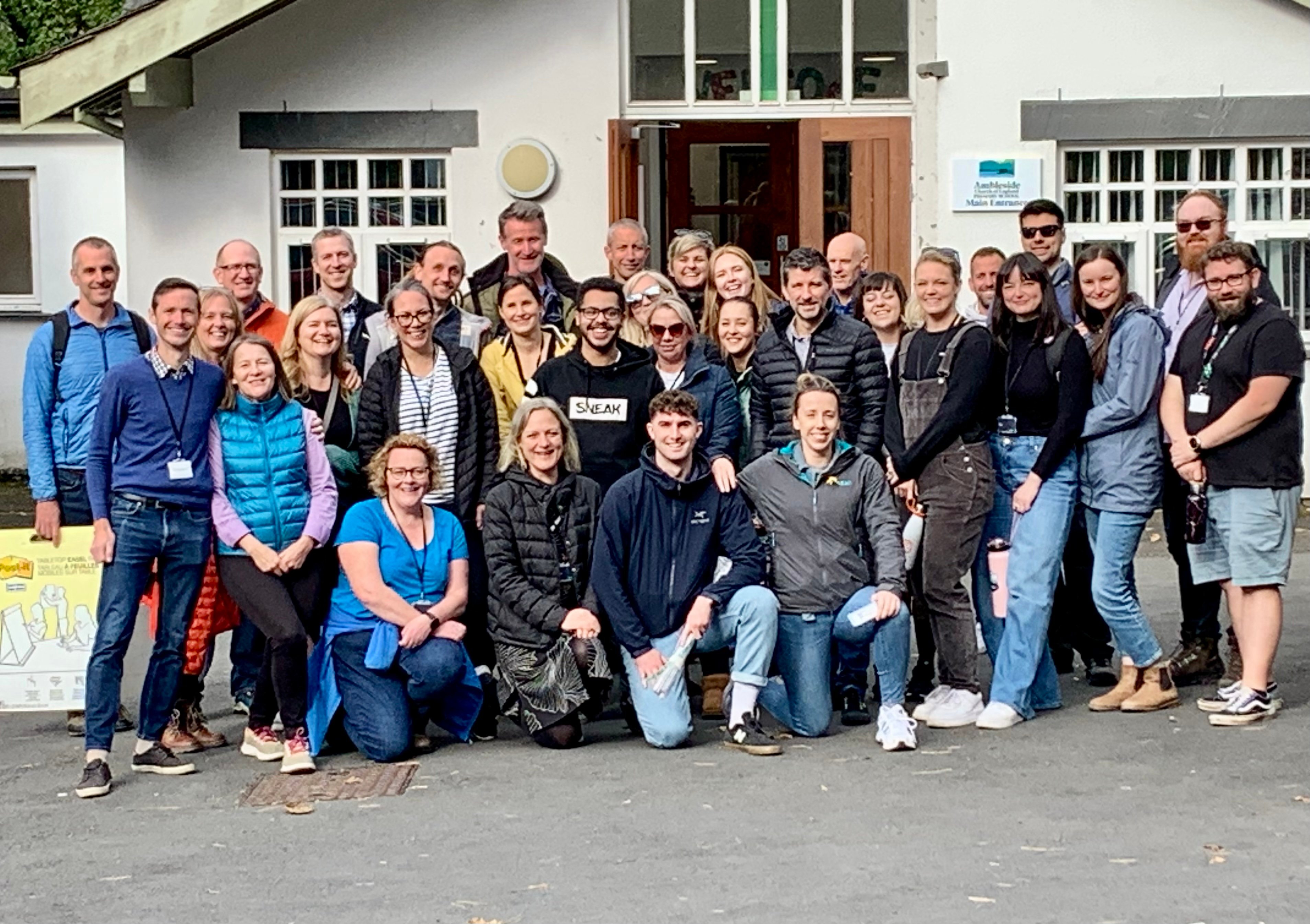Ailie Shackleton is Head of Content Marketing at Impact
In my experience, when it comes to team building there are two types of people:
1. Enthusiasts
2. People like me
If you don’t identify as an enthusiast, you may recognise these range of emotions when told a team day is planned, from ‘I’ve got real work to do and don’t have time for this’, to ‘I’ve done this before so what else is there to learn’, to ‘I don’t like surprises / large group activities / endless talking about issues that never get resolved, so I need to work out how to manage my facial expressions to protect my career’.
OK… I can't claim this theory to be based on any research, but you get the idea. Time is a precious resource and convincing an entire department to get involved in a corporate team building day is never going to be easy.
Team building activities for employees
Step forward Scott Rose, Impact’s daring Head of UK. Once a quarter he enthusiastically brings as many of us together for a culture day, a day to learn, focus and connect. Last month the agenda was to be ‘a surprise’ (aka the worst type of team build if you are not an enthusiast). Scott opened the day by announcing that we would be taking part in an experiential learning project – exactly like those we design and deliver for our clients. He’d planned a consequential community action learning* project for us – where in approximately 5 hours’ time we would be responsible for guiding 48 primary school aged children through a session designed to help build their confidence, resilience and self-awareness.
Corporate team building in action
There was a moment in the room where the gap between enthusiasts and ‘people like me’ felt palpable… but Scott doesn’t do anything without great intent and our local school was expecting us. A flurry of brainstorming, conversation and collaboration ensued. Acknowledging the strengths in the room and recognising the opportunity for people to develop led to us designing 90 minutes of activities that would hit the headteacher’s educational brief, captivate the students’ attention and encourage active participation. We incorporated games, interactive discussions, and hands-on projects that emphasised teamwork and resilience.
How to measure the ROI of corporate team building
The success of a large group event or a team building day can be felt in the moment. Watching the students engage with the activities and see their faces light up with understanding and excitement was incredibly rewarding. Spending a day with my colleagues not only reminded me how much energy I get from being in their company, but also how we are capable of much more when we come together with focus.
After the event I reflected on why corporate team builds matter:
- Communication and collaboration: I appreciated the open dialogue, the space to challenge each other and the time to chat with people I don’t work with every day.
- Problem-solving skills: at the start of the day I had no idea how we’d deliver a project to 48 school children. But we did it. And we did it well. It was really powerful for me to reflect on the creative mindsets and determination to succeed that we all demonstrated.
- Motivation and stress busting: Did I have a long to-do list that day? Yes. Did I cross anything off? No. Did I feel better? One hundred percent. The break from the usual routine and the chance to reconnect to our organisational values boosted my wellbeing and reminded me that not all the important bits of work are found at the end of to-do lists.
How the team build was used to drive our business
When it comes to measurable return on investment, data gathering and metrics, what made the day so successful was that it was designed to drive our business. The outcomes required of the community action learning programme were anchored in our business strategy and company values. Scott clearly positioned the need, the relationship building, and the outputs against our guiding principles. And when team-building events are structured so that participants need to solve real business challenges and produce tangible results, learning is automatically transferred back to the business and sustained. High-performing teams aren't created overnight, but there are steps leaders can take to accelerate team development. Find out more about Impact's approach to team development.

Photo of the Impact UK team after their Community Action Learning project
Employee team-building ideas for your business
Team building activities for work can range from simple icebreakers and group workshops, to companywide large group events or executive retreats. When you participate in corporate team building activities you should be building trust, communication and improving problem-solving skills. At the end of our day, feedback showed that our team building event had boosted morale, improved wellbeing, and created a sense of camaraderie. This day was a valued investment in time, but I’ve also reflected on another team-building activity I’ve got a lot of value from recently. If you have 30 minutes, why not try this short project: work with your team to agree your purpose… each team member completes two short statements and then as a team you work to agree one joint commitment. We did this as a sub-team of three and refer back to our output regularly - I hope you'll enjoy it too.
*What is Community Action Learning?
Impact's Community Action Learning methodology provides both a community engagement experience and a learning opportunity that is clearly aligned to an organisation’s values. Whether it’s mentoring school students, constructing a bird hide, or building prosthetic hands, Community Action Learning affords participants an opportunity to step outside of their day-to-day into something truly consequential. These unfamiliar, real-world situations confront people with leadership vacuums and deep challenge, with meaningful consequences for them and, crucially, others.
As another vehicle for our experiential learning, facilitators bookend Community Action Learning with reflection and discussion sessions, ensuring they ground the experiences in the broader learning journey, and help participants to draw out the key learning in the moment.
If you’re interested in our approach to Community Action Learning and want to learn more about how we can create impactful team building experiences for your organisation or community, please get in touch. Our LendLease case story is a great example of what Community Action Learning can look like within a learning programme.
